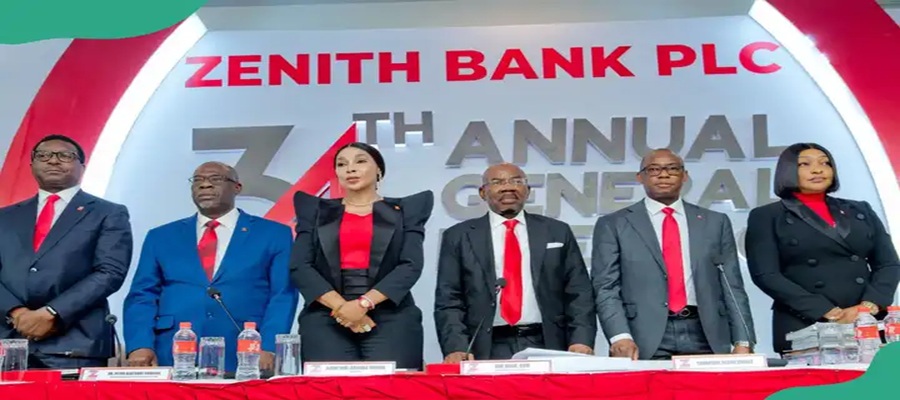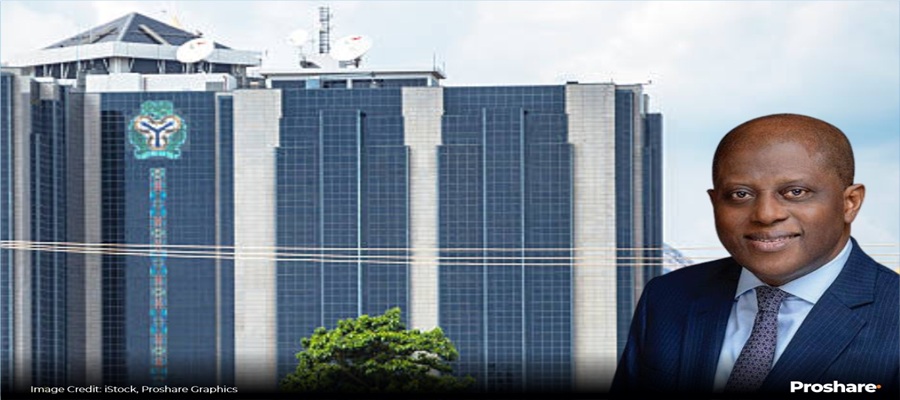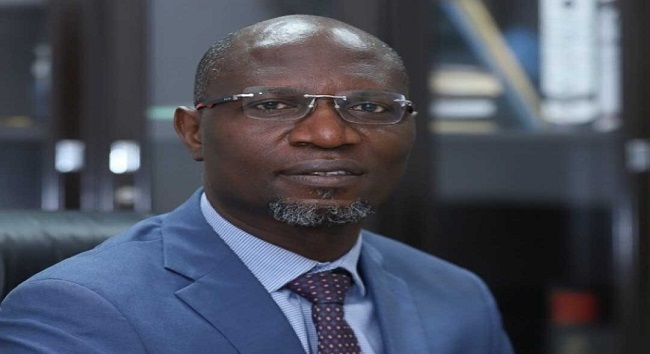E-Financial
Heritage Bank Identifies High Prospects in Nigeria’s £4Bn Gold Market

Heritage Bank Plc, Nigeria’s most innovative banking service provider, has disclosed that Nigeria’s Gold market is worth £4 billion Pounds with high prospects of profitability for all players in the subsector.
Ifie Sekibo, managing director/ceo, Heritage Bank Plc stated this at the Nigeria-Canada Investment Summit, held yesterday in Abuja.
He also disclosed that the enormous potential of the industry was one of the reasons why Heritage Bank delved into the mining sector despite enormous risks.
According to him, the bank has Dukia Gold as its partner that would facilitate access to local miners and artisans to get value for their commodity at international market price after being registered with Dukia Gold.
Sekibo, who was represented by Adelana Ogunjirin, team lead, Agric Finance and Export, explained that prior to now, local miners of Gold found it difficult to trade their commodities favourably but with the involvement of Dukia and its partner, Heritage Bank, a Quality-and-Quantity test will be conducted based on the arrangement they made with Dukia Gold and that will lead to additional value to the small holder miners.
He explained that this will leverage the small miners the opportunity to also trade their commodities at international market price.
He further stated that a metric tonne of Gold is currently valued at $30million adding that it is worth investing in the industry, especially as gold is a kind of commodity that does not easily lose its value.

R-L: Managing Director /Chief Executive of Nigeria Export -Import Bank (NEXIM ) Mr Abba Bello; Chief Executive of Bullion Mart, Mr Moniruz Zaman; Team Lead, Agric Finance and Export Heritage Bank, Mr Adelana Ogunjirin; Minister of State for Mine and Steel Development, Dr. Uchechukwu Ogah and Dr. Hadiza Gado, during NCIS Summit 2019 – Mining Master Class held at Transcorp Hotel Abuja.
He said: “Mining sector is an area which has not been fully tapped in terms of the potentials around it, as there are quite a lot of opportunities around that sector.
“Recently we secured $1 billion funding line with our funding partner AfreximBank, which also is to support areas like solid minerals.
“Now with respect to this we have looked at the value chain of this space and we have looked at the opportunities that are there. A lot of fund providers have not really delved into this and it is because of the lack of understanding of the market.
“In terms of value, gold is an area where you can enhance the value. You hardly see Gold losing value and you see that indifferent exchanges you even trade those commodities.
“Looking at it in terms of trend, you see that gold is something that will appreciate definitely. So in terms of the profitability of this business, we have looked at it, the crunch, the numbers we see that is a space that the Bank will definitely earn a lot of income.”
He also expressed optimism that other banks would like to come into the Nigerian mining sector, but may be studying to understand the sector properly.
“Definitely other banks will come into the sector. For us we are leading, but the truth is they need to play in an area and space that they understand, as not everybody would be able to play in that space.
“Heritage Bank has already carved a niche for itself in agribusiness space, just like the Gold commodity, this would be exported. So, in terms of export proceeds too, there are opportunities to be explored. Generally, looking at the Nigerian outlook, on the long run, this will also enhance the country’s external reserves.
“There are multiplier effects of what we are doing today and that is why we are also moving in this direction,” the MD noted.
Also speaking, Abba Bello, managing director, Nigeria Export-Import Bank, NEXIM revealed that the bank had gone into high level discussions with heavy equipment manufacturers and suppliers that would lease equipment to miners for exploration and processing, adding that this was expected to make the equipment accessible and affordable.
Bello said, “For equipment supplier or outright purchase of equipment, we have gone into discussions with Bluecare and now Mantrac for the supply of heavy equipment for gold processing or exploration on lease basis and, it is something that does not exist currently within the industry.
“Barrick Gold and Bullion Mart is something that happen in the mining world. You don’t have to own the equipment, but there are vendors who supply the equipment for explorers to hire.
“Discussions have gone very far with the equipment suppliers and very soon we will announce the programme.”
Meanwhile, Habibah Waziri, country manager, ITM, Nigeria raised concerns on human resources development that would sustain the sector.
Waziri also said there is need to formalize the sector and also invest in human capital in the sector for growth and development.
E-Financial
Zenith Bank Top Nigerian Bank Pick Ahead of GTCO, AccessCorp

Renaissance Capital Africa (Rencap) has named Zenith Bank Plc its top conviction pick among Nigerian banks, ahead of GTCO and AccessCorp, in a fresh research report highlighting the lender’s robust balance sheet and dividend potential despite sector headwinds.

Zenith Bank
The comprehensive review of the Nigerian banking industry notes that Zenith’s current market valuation lags its improving fundamentals, even as the NGX Banking Index posts strong gains recently.
Rencap upgraded Zenith from HOLD to BUY, lifting its target price by 96 per cent based on a lower risk-free rate from falling government bond yields, refined beta estimates, and expectations of cleaner assets post-forybearance resolutions.
Balance Sheet Strength Drives Outlook
Analysts project challenges to earnings growth from anticipated Central Bank of Nigeria (CBN) rate cuts but foresee higher dividend payouts from resolved forbearance and single obligor loan (SOL) exposures alongside rising cash profits.
“Although we expect banks to face challenges in growing earnings… the balance sheet clean-up… will support higher dividend payouts relative to prior years,” the report states, ranking Zenith first, followed by GTCO and AccessCorp.
Key positives include loan write-offs that bolstered asset quality, enabling sustainable growth amid financial system reforms.
Dividend Recovery in Focus
Sector profitability from 2023-2024 was inflated by unrealised foreign exchange gains, which regulations barred from cash dividends, capping payouts despite headline profits.
Zenith historically led payout ratios in 2021-2022 via strong cash generation and capital discipline; Rencap expects a rebound as pressures ease, attracting income-focused investors.
Tier-1 Leadership Reinforced
Zenith Bank recently topped Nigeria’s tier-1 capital rankings for the 16th straight year, per The Banker magazine (Financial Times), affirming its resilience and positioning for long-term value creation.
E-Financial
Here Are Nigerian Banks That Have Secured Their Licences


CBN
- Access Bank Plc
- Fidelity Bank Plc
- First Bank of Nigeria Ltd
- Guaranty Trust Bank (GTBank)
- United Bank for Africa (UBA)
- Zenith Bank Plc
- FCMB (First City Monument Bank) – currently pushing to raise additional capital to secure its international licence.
- Wema Bank
- Standard Chartered Bank (Nigeria)
- Citibank Nigeria
- Stanbic IBTC Bank
- Sterling Bank
- Globus Bank
- Premium Trust Bank
E-Financial
SEC Hikes Minimum Capital Requirements for Market Operators After a Decade

The Securities and Exchange Commission (SEC) has revised the minimum capital applicable to all categories of regulated capital market entities after 10 years.

The minimum capital review, according to the SEC, is informed by the need to strengthen market resilience, enhance investor protection, align capital adequacy with the evolving risk profile of market activities, and ensure that regulated entities possess sufficient financial capacity to discharge their obligations in a sustainable manner.
“The revised Minimum Capital framework seeks to: enhance the financial soundness and operational resilience of market operators; align capital requirements with the scope, complexity, and risk exposure of regulated activities; promote market stability and systemic risk mitigation; and support innovation and orderly development of new market segments, including digital assets and commodities markets,” SEC said in a January 16 circular to market operators.
The SEC circular was sent to all entities regulated by the Commission, including but not limited to core and non-core capital market operators; market infrastructure institutions; capital market consultants; financial technology (FinTech) operators; Virtual Asset Service Providers (VASPs); and Commodity market intermediaries.
All affected entities are required to comply with the revised Minimum Capital Requirements on or before June 30, 2027, the circular said.
“Entities that fail to meet the prescribed requirements within the stipulated timeline shall be subject to appropriate regulatory sanctions, including suspension or withdrawal of registration, as may be determined by the Commission,” SEC said.
Tier-1 Portfolio Managers (Full Scope) involved in the management of Collective Investment Schemes (CIS) and Alternative Investment Funds (Private Equity, Venture Capital, Infrastructure Funds etc) above N20 billion Net Asset Value (NAV), or discretionary and Non-Discretionary Private Portfolio Management Services above N20 billion Assets under Management (AuM), or exposure to foreign instruments up to 40 percent of the NAV are now required to have a minimum capital of N5 billion as against N150 million.
“Any Fund and Portfolio Manager with NAV/AuM of more than N100billion should have a minimum of 10 percent of the NAV/AuM as capital,” SEC added.
For the Tier-2 fund/portfolio managers (Limited Scope) who are in the business of management of Collective Investment Schemes with limited pooled fund creation of not more than 10 times the required capital (N20 billion) on Net Asset Value (NAV), or discretionary and non-discretionary private portfolio management services of not more than N20 billion, or those exposure to foreign instruments of not more than 20 percent of the NAV, now require N2 billion as minimum capital as against low of N150 million.
Likewise, broker-dealers whose services include: client execution, proprietary trading, margin/securities lending and advisory services no longer require N300 million minimum capital to operate but N2 billion.
The SEC said the minimum capital review from 2015 low is in line with its mandate under the Investments and Securities Act 2025 to regulate and develop the Nigerian capital market.
Also, Tier 1 issuing houses who do non-interest finance services, advisory & arrangement services but no underwriting now require N2 billion as against N200 million; while Tier 2 –issuing houses with underwriting and offers a ‘one-stop-shop’ for issuers, provides underwriting services, and renders advisory and product development services require N7 billion minimum capital for this business as against N200 million.
Also, the minimum capital requirement for brokers (client execution only) has been jacked up from N200 million to N600 million, while that of dealers (proprietary trading only) has been moved from N100 million to N1 billion.
Broker-Dealers’ (client execution, proprietary trading, margin/securities lending and advisory services) has been raised from N300 million to N2 billion, while Sub-Brokers’ (Digital) from N10million to N100million; Sub-Broker (Corporate) has been increased from N10million to N50 million. Also, sub-brokers’ (Individual) now need N10 million minimum capital for the business as against N2 million while inter-dealer brokers require N2 billion as against N50 million.

 E-Financial2 days ago
E-Financial2 days agoSEC Hikes Minimum Capital Requirements for Market Operators After a Decade

 Telecom2 days ago
Telecom2 days agoVodacom Crowned Africa’s Top Employer 3rd Year Running on Innovation, Ethical AI

 News2 days ago
News2 days agoNigeria Off EU High-Risk Money Laundering List in Major Financial Win

 Telecom2 days ago
Telecom2 days agoStudy Shows Blocks in Telegram are Pushing the Underground Out

 News2 days ago
News2 days agoNGX Unveils Net-Zero Plan for Greener Capital Market

 Telecom2 days ago
Telecom2 days agoGalaxy Backbone Marks Two Decades of Powering Nigeria’s Digital Evolution

 Telecom2 days ago
Telecom2 days agoGalaxy Backbone Marks 20 Years, Tops FG Website Scorecard

 News5 hours ago
News5 hours agoICPC Charges Ozekhome with Forgery, Corruption Over London Property

























